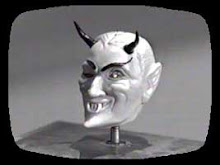skip to main |
skip to sidebar
Revisiting the timeline in the arrest affidavit.
Why don't we take a look at the information that was filed by the state against the defendants in Bernardo Barrera mortgage fraud case, perhaps then we'll have a better understanding of what went down. Here's the time line as it appears in the arrest affidavit...
Let's look at those dates:- 2/13/08 Purchase of the subject home by Mr. Romney's company.
- 2/19/08 Sale of property by Mr. Romney to the man who posed as Bernardo Barrera. The state alleges that a HUD-1 closing statement was faxed to the lender indicating that the earnest money was already paid.
- 2/20/08 Citi mortgage wire transferred loan proceeds to attorneys trust account.
- 2/21/08 Michael Martinez purchases a cashiers check for $123,530.56 made payable to attorneys trust account.
- 2/22/08 Proceeds from the closing were disbursed to seller (Romney).
- 2/27/08 Cashiers check purchased by Martinez is deposited into the attorneys escrow account.
No doubt that's a lot of information to digest, go over it again and pay specific attention to the dates. Why were the proceeds of the closing disbursed three days after the closing occurred? Perhaps only two days after the closing depending what time the closing occurred on the nineteenth. Why were the proceeds disbursed the day after Michael Martinez purchased the cashiers check that was for according to the affidavit "the earnest money" for the closing? Here's the big question, the affidavit states that the CASHIERS CHECK representing the "earnest money" was deposited on 2/27/08, who had the check after it was issued? One would tend to think that the check was handed over to the attorney on 2/21/08 or 2/22/08 triggering the disbursement of the proceeds of the sale, yet this essential element of the time line is somehow conspicuously absent. Also, the state fails to acknwoledge that the dates between the delivery of the check and the deposit include a weekend. Why were the details of who had possession of the "earnest money" cashiers check left intentionally ambiguous? If indeed the check was given to the attorney before the disbursement, the state would have a hard time convincing the judge who signed off on the affidavit that the attorney was complicit in the fraud, wouldn't it?I'll leave you with the following issues to ponder till tomorrow:- Why were essential details regarding the possession of the cashiers check representing the "earnest money" required for the closing intentionally left out of the arrest affidavit?
- If indeed the attorney was in on the fraud, why was a cashiers check for the "earnest money" even required?
- If indeed the attorney was in on the fraud, why was it necessary to involve another conspirator who was paid an additional $10,000 for his involvement out of Romney's cut of the profit?
- For that matter, If the attorney was in on it, why did they need an impostor to go to the closing and pose as Bernardo Barrera?
- And most importantly, If indeed the attorney was in on the fraud, as the state alleges, why can't I find any proof in the states case file of a "payoff" to the attorney for her involvement?
Tomorrow we'll see how the prosecutor thinks things went down, for some reason or another, his version of events is a lot different than what is alleged to have happened in the arrest affidavit...


No comments:
Post a Comment